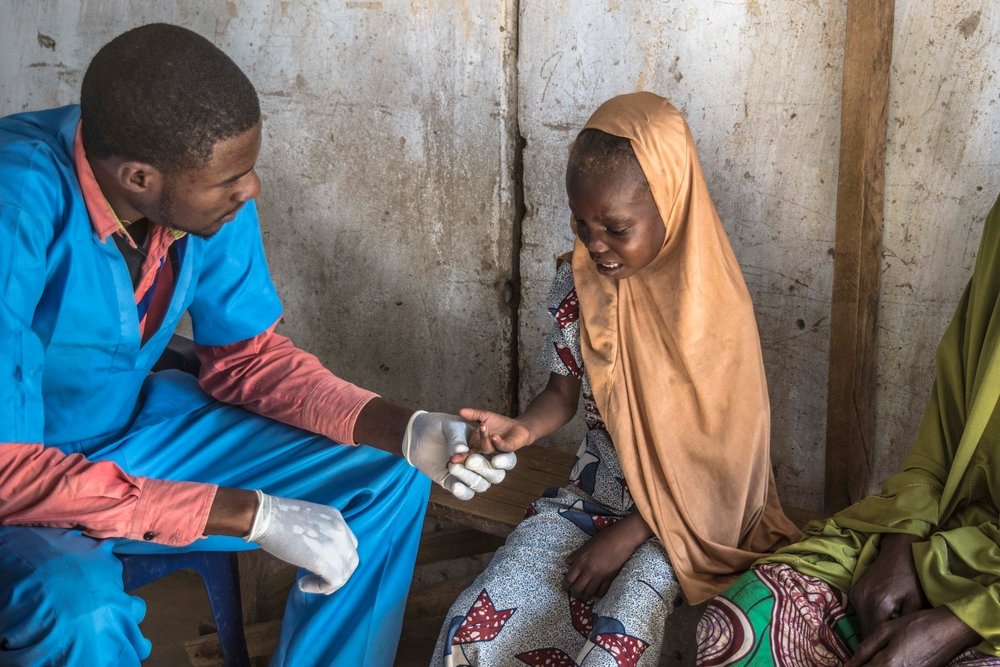Homa Bay has the highest rate of HIV infection in the country, with over 24% of the population of the county testing positive to the virus, and 2% of the population infected every year. MSF supports both inpatient and outpatient services in 33 facilities in Ndhiwa subcounty, in addition to two wards for patients with advanced HIV-related diseases. MSF also supports the tuberculosis (TB) ward at Homa Bay county referral hospital, treating patients with both drug-sensitive and drug-resistant strains of the disease.
Dadaab Refugee Camps
The Dadaab refugee camps in northeast Kenya have sheltered refugees for over 25 years.
The camps came under threat in 2016 when the Kenyan government announced their intended closure, citing economic, security and environmental concerns. The decision would have forced the inhabitants, nearly 250,000 Somali refugees, to return to Somalia, where there is limited access to healthcare and ongoing insecurity.
In February 2017, in a ruling that was welcomed by MSF, the High Court of Kenya put a stop to the government’s plans to close the Dadaab camps.
In Dagahaley camp in Dadaab, MSF runs two health posts, as well as a hospital for more complicated cases. The teams in Dagahaley provide sexual and reproductive healthcare, surgery, medical and psychological assistance for victims of sexual violence, mental health support, treatment for HIV and tuberculosis (TB), palliative care for patients with chronic illnesses, home-based insulin management for patients with diabetes, and emergency response services.

